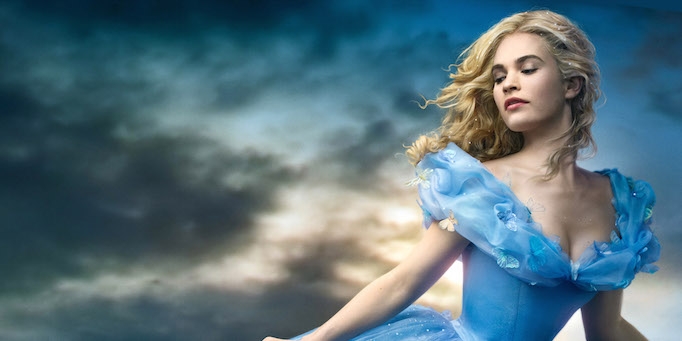
Cinderella: Movie Review
What can the ultimate love story teach our children about Jesus?
“I want to tell you a secret that will see you through all the trials that life can offer. Have courage and be kind.”
I reckon Disney movies tell you a lot about the beliefs of our day, or they carry on ideas that have been around for a while; in other words, they retell classics. Kenneth Branagh’s adaptation of Cinderella falls into the second category, although it is still a bit of both. It’s a simple and faithful retelling of the classic story for a new generation, and no doubt will continue to remain popular.
So why is this story worth revamping? Why is it worth passing down to our kids (or at least, daughters)? What is so appealing about this story?
A classic tale
Everyone knows the overall idea; Cinderella, the beautiful and innocent servant girl, the horrible stepmother, the prince, the ball, the fairy godmother, the pumpkin carriage, magic disappearing at midnight, and the glass slippers. It’s certainly no new tale.
As a fantasy, the story isn’t set in real historical time, but it does somewhat resemble 16th century-ish England, with monarchs and princes and castles. It is a pretty movie; the cinematography is full of colour and beautiful landscapes. It was filmed in Hampton Court Palace in London, the stunning palace of King Henry VIII. This story is mostly the same as the tale goes, along with some clever (and funny) moments along the way.
Ella (James) is the daughter of a wealthy (and very good-looking) couple, and seems to have a perfect childhood, until her mother falls sick and dies. Before her death, Ella’s mother tells her, to survive the hardships of life, to “have courage and be kind.” This ‘moral truism’ becomes the centre of Ella’s life and behaviour for the rest of the film. When her mother dies, her father eventually decides to remarry a widow (Blanchett). When Ella’s father dies as well, she is left alone under the cruelty of her stepmother and her two horrible (yet brilliantly played) stepsisters, who treat her like a servant.
Ella flees her home and comes across Kit, a humble (and very good-looking) “apprentice”, who, unbeknownst to her, is the Prince of the land. Kit hosts a ball for “the maidens of the kingdom” in hopes of finding a wife, but in reality a secret effort to be reunited with Ella. Ella is forbidden by her stepmother from attending the ball, but Ella meets her fairy godmother, brilliantly played by Helena Bonham Carter. With her help, along with various animals and a bit of magic, Ella is able to attend. And the rest, they say, is (fairy tale) history.
The ultimate love story
This story is a classic; it has defined the tropes of the movies of our generation in many ways. I think it is in some ways the ultimate love story; a simple girl and a prince, who ‘fall in love’ at first sight, and is loved and pursued until they are happily together. There is dancing and singing and beautiful people with perfect skin (there are lots of extreme close-ups throughout the movie, I couldn’t help but notice how great their skin was). In some senses, it’s a beautiful tale of romance and fantasy. But this picture has some flaws.
Everything in this movie is just so perfect; no pimples or dirt on any face, perfect teeth, perfect clothes – perfect people in many ways. But life is not so beautiful – once you leave the cinema, it’s right back to reality – our dirty, smelly world full of pain, hurt, grief and tears.
Does this kind of perfect love exist? Does anyone ever end up so happily ever after?
Loving ugly people
In some ways, God’s love for his people is similar to the Prince’s for Cinderella – it is patient, faithful, kind, other-person-centred, and unending.
But in other ways, it’s not. The people God loves aren’t as beautiful and innocent and kind as Cinderella. They aren’t as easy to love. They are messy, they fall short, and they are full of guilt and shame.
The Bible says that before God, our standing with God is more like a “filthy rag” than a beautiful, sparkling blue ball gown like Cinderella’s (Isaiah 64:6). We aren’t pure and innocent and beautiful – we are defiled, dirty and ugly.
But that is where God shows his love – that even as we are, God chose to love us, to the point that he sent his own Son to take away our guilt through his death on the cross (Romans 5:8).
The love of Cinderella and the Prince resonates with Jesus’ love for his church – he laid down his life for her, that he might make her “a radiant church, without stain or wrinkle or any other blemish”. He purifies her and makes her beautiful (Ephesians 5:27).
Cinderella’s moral truism, “Have courage and be kind” simply doesn’t work for the real world – we need a greater love than that. And we have it in Jesus.
Perhaps as an idea, if you are a parent seeing this movie with your daughter, ask yourself, and her, “Do you think God loves us because we’re beautiful, like Cinderella?”
Republished with permission from www.reel-gospel.com
For more articles from Growing Faith, subscribe to our monthly e-newsletter.
To hear about the latest books and resources from Youthworks Media, subscribe here.




